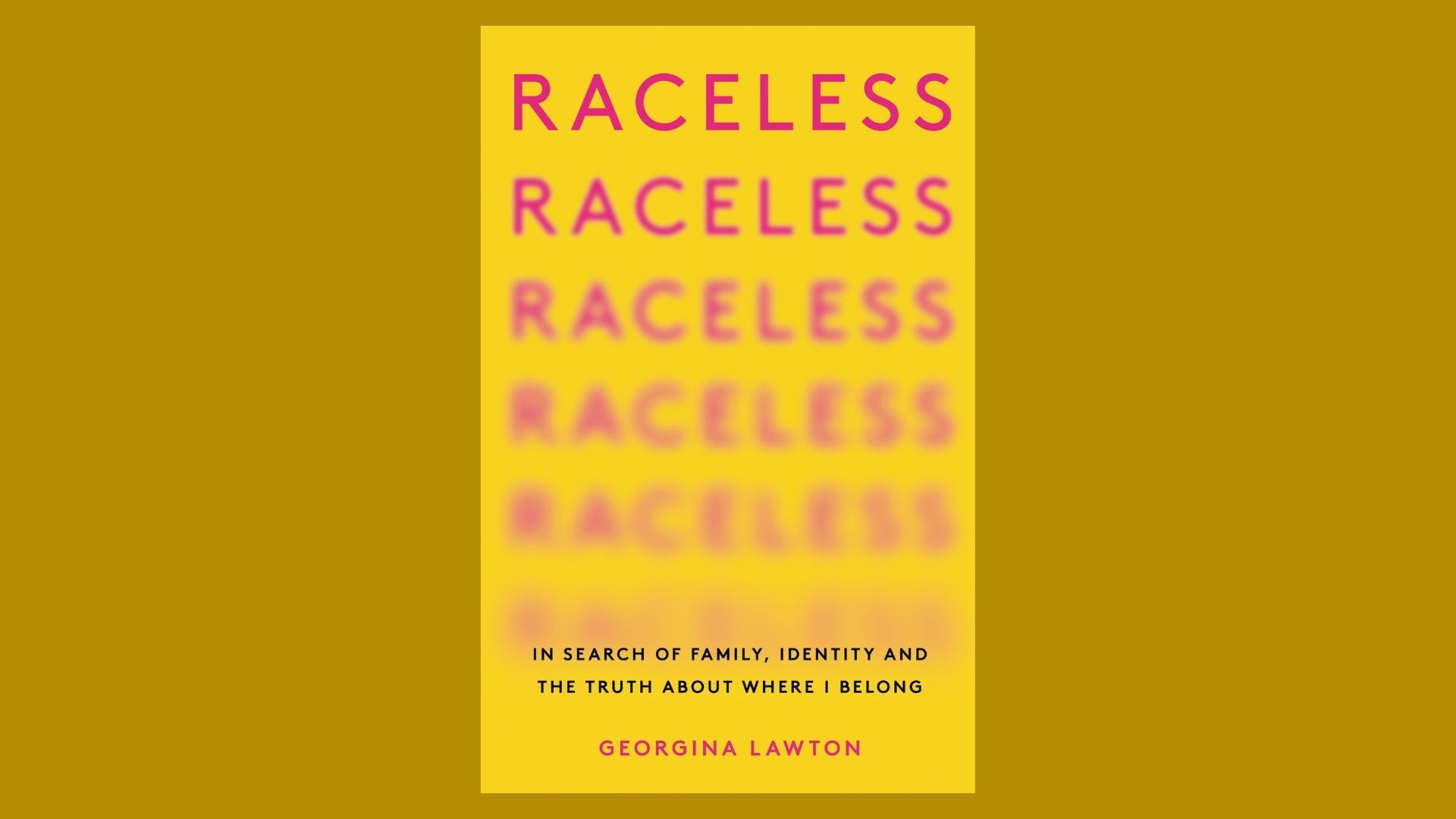Georgina Lawton’s Memoir ‘Raceless’ Examines How Racial Identity is Constructed
Maintaining the false tale of her genealogy became a burden on Georgina Lawton’s psyche. Her memoir details her mission to unravel the truth — no matter how painful it may be.

It was a DNA test that flipped Georgina Lawton’s world upside down. A year after her father passed away from cancer, the test revealed that the two were not biologically related.
From childhood, Lawton had an inkling that something was “different” about her. Her curly hair and dark skin were cosmetic traits that didn’t look like her parents or any of her family members. Whispers and peer inquiries about her identity floated through the family’s white suburban London community, but the love she experienced within her household kept her curiosity at bay.
Click the audio player above to hear the full interview with author Georgina Lawton about her gripping memoir, Raceless.

“This unspoken truth was just there and it was me dealing with it and that was why I didn’t look like the rest of my family. I didn’t really understand race and its meaning because it was never explained to me,” Lawton says. “As a child I tried to work out why that was but I didn’t have the emotional capability to do that. It wasn’t this deliberate brainwashing. I had such a loving family. I didn’t want to disrupt that, so I became complacent in silence.”
In her memoir, Raceless: In Search of Family, Identity and the Truth About Where I Belong, Lawton begins to unpack her understanding of race and identity. Her mother had a one-night stand with a Black man, became pregnant, birthed Georgina, and created a life in London with her Irish husband. With consent from her dad before his passing, she took a DNA test that guided her toward the truth. Part-memoir, part racial analysis, Raceless tackles how race is constructed and travels through Lawton’s unknowing, discovering and becoming.
“I called the book Raceless because of that feeling of having your race ignored or your race identity misattributed, which is what happened to me by my parent’s silence,” Lawton says. “I could fully see myself; I just didn’t know what it meant because I didn’t have that pride in who I was. So I had to start readjusting my psychology.”
Related: I Submitted My DNA to Discover An Identity. Instead, I Found a Family
Trusted, accurate, up-to-date
WDET is here to keep you informed on essential information, news and resources related to COVID-19.
This is a stressful, insecure time for many. So it’s more important than ever for you, our listeners and readers, who are able to donate to keep supporting WDET’s mission. Please make a gift today.

